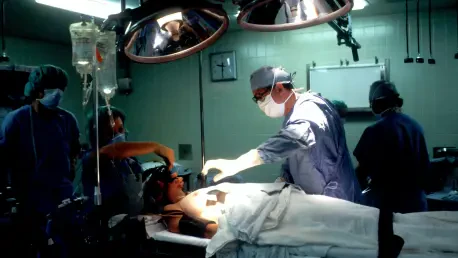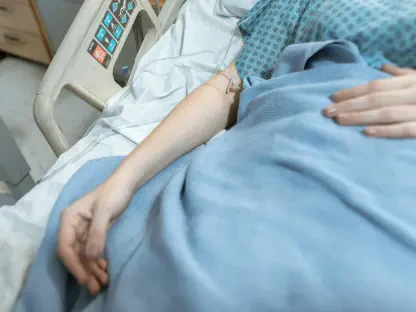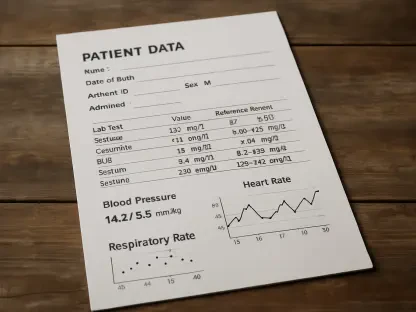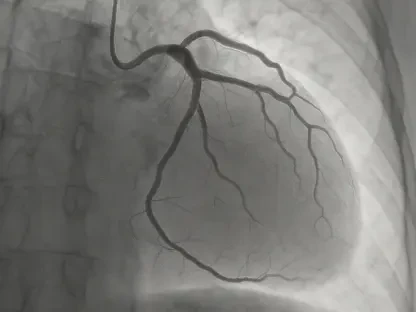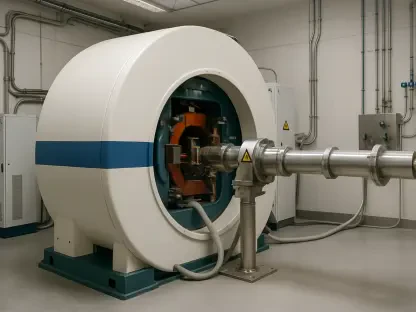The launch of the Surgical Performance Enhancement and Robotics Center (SuPER) at the Montreal General Hospital represents a significant milestone in the evolution of Canadian surgical procedures. This initiative, part of the McGill University Health Center, stands as a testament to the progressive integration of robotics and artificial intelligence in medicine. SuPER is the first hospital-based facility in Canada dedicated exclusively to advancing surgical methodologies through tech-driven innovations. The center aims to translate theoretical research into practical clinical applications, ultimately improving patient outcomes. By incorporating the expertise of clinicians, engineers, and researchers, this multidisciplinary endeavor seeks to reshape surgical practices, ensuring more personalized, minimally invasive, and efficient interventions.
Spearheading Innovation in Surgical Techniques
Innovation is fundamental to SuPER’s mission, directing its resources toward refining surgical methods that promise better results for patients. Utilizing robotics and artificial intelligence, the center focuses on creating procedures that reduce invasiveness while enhancing personalization and efficiency. This technological approach caters to a wide array of medical fields, including orthopedics, cardiology, and radiology, among others. In particular, robotic systems are designed to assist surgeons in performing complex tasks with heightened precision, thereby mitigating risks and improving accuracy. This pioneering work is not limited to mere theoretical advances; it is about making meaningful changes in everyday clinical practice. By bridging the gap between research and real-world application, SuPER sets the stage for a transformative future in interventional care.
The facility’s contribution extends across multiple medical specialties, addressing the diverse needs of patients. In orthopedics, for instance, robotics can facilitate precise joint replacements, reducing recovery times and increasing the likelihood of successful outcomes. Abdominal surgery is another area poised for transformation, with advancements potentially minimizing recovery periods and enhancing recovery experiences. By harnessing the power of AI, surgeons can also anticipate complications and customize interventions to meet individual patient needs, ensuring that care is not only effective but also tailored. This comprehensive approach indicates a shift towards a more reliable, data-driven surgical environment, aligning with the evolving landscape of modern healthcare.
Collaborating for Success
The success of SuPER relies largely on a multidisciplinary framework that unites different fields of expertise, a strategy that has proven invaluable in advancing surgical practices. By bringing together clinicians, engineers, and researchers in a collaborative setting, the center fosters an environment where innovative technological platforms can be developed and tested. This cooperation challenges the status quo, leading to groundbreaking results that defy conventional surgical paradigms. This comprehensive collaboration aligns various sectors and their unique insights, fueling the creation of tools that significantly improve surgical precision and patient outcomes.
The collaborative efforts at SuPER go beyond developing new technologies; they also involve cultivating a shared understanding of patient care and how it can be enhanced. By drawing on expertise from disparate fields, the center is able to devise strategies that optimize the use of robotics and AI in surgery. This integrated approach not only enhances technological capabilities but also ensures that advancements are practical and effectively implementable in clinical settings. Ultimately, SuPER’s collaborative framework exemplifies how diverse knowledge can come together to push the boundaries of what is possible in surgery, providing a model for future medical innovations.
Enabling Surgical Enhancement
The SuPER facility is equipped with state-of-the-art robotic systems that significantly enhance the capabilities of surgical teams. These advanced machines, developed in collaboration with the Clinical Innovation Platform (CLIP), act as extensions of the surgeon’s ability, delivering unparalleled precision. By working in tandem with artificial intelligence platforms, these robots ensure that procedures are meticulously planned and executed, leaning heavily on data-driven insights. Such technology allows for surgeries that are not only safer but also more effective, setting new standards in patient care. This precise approach demonstrates the potential for robotics to revolutionize traditional surgical methods, offering new possibilities for complex interventions.
In addition to enhancing surgical precision, AI platforms developed at SuPER play a crucial role in supporting surgeons and their teams. These systems are designed to interpret vast amounts of clinical data, providing real-time assistance that ensures every step of a procedure is optimally executed. With access to such powerful tools, surgical teams can make more informed decisions, leading to improved patient outcomes. This melding of robotics and AI signifies a forward-thinking approach to surgery, one that prioritizes exactitude and patient safety. Furthermore, the emphasis on outcome-focused procedures aligns with broader healthcare goals, aiming to deliver care that is both efficient and patient-centered.
Educational and Historical Significance
SuPER’s mission extends beyond immediate technological advancements, also encompassing education and fostering surgical innovation rooted in the historical context of the Montreal General Hospital. For decades, MGH has been at the forefront of surgical innovation, achieving significant milestones in minimally invasive procedures and garnering recognition for its contributions to cancer treatments and organ transplants. Building on this legacy, SuPER serves as a training ground for the next generation of surgical leaders, empowering them with the skills and knowledge necessary to push the boundaries of surgical practices. By nurturing talent in such a supportive environment, the center ensures that the surgical advancements of today pave the way for the innovations of tomorrow.
As a hub for education and research, SuPER provides a collaborative atmosphere where students and professionals alike can engage with the latest advancements in surgical technology. This environment encourages the exchange of ideas and development of skills essential for future medical professionals. With access to cutting-edge resources and mentorship from leading experts, those at SuPER are well-positioned to influence the future of surgery. The commitment to education and leadership development underlines the center’s broader mission of continuous improvement and innovation in medical practice, ensuring that MGH’s rich tradition of excellence not only endures but flourishes.
Visionary Leadership and Strategic Goals
Under the guidance of Dr. Liane Feldman, Surgeon-in-Chief of MUHC, SuPER is set to redefine the landscape of surgical care through strategic foresight and visionary leadership. Dr. Feldman envisions a future where surgical procedures are not just technologically advanced but deeply personalized, leveraging predictive models and tailored interventions that reduce complications and expedite recovery. Her strategic roadmap outlines a decade-long initiative focused on integrating groundbreaking technologies into clinical practice. By doing so, SuPER aims to transform patient experiences, making surgeries safer and recovery swift. This forward-thinking approach aligns with the center’s overarching objective of fostering a healthcare environment that prioritizes patient well-being above all.
The strategic plan devised by Dr. Feldman is comprehensive, emphasizing the importance of technology in enhancing surgical outcomes. Predictive models are central to this vision, using data analytics to anticipate and address potential challenges before they occur. Personalized interventions further ensure that patient care is specifically tailored to individual needs, accommodating various health conditions and preferences. The ultimate goal is to create a resilient healthcare system capable of adapting to future challenges while consistently delivering high-quality care. Dr. Feldman’s leadership ensures that SuPER is not only at the cutting edge of surgical technology but also a beacon for transformative healthcare in Canada.
Comprehensive Innovation and Research Integration
Comprehensive innovation at SuPER involves a seamless integration of research and clinical application, creating a cycle that fosters continual improvement in surgical practices. By synergizing distinct data sources, the center maintains a dynamic ecosystem where new ideas rapidly evolve from conception to deployment. This integrated approach ensures research efforts are not only groundbreaking but directly applicable to real-world scenarios. The capacity to bridge theory and practice epitomizes SuPER’s commitment to delivering smarter surgical solutions. Moreover, this innovation process has consistently secured regulatory clearances, validating the center’s technological advancements and underscoring its leadership in the medical community.
The research integration at SuPER is characterized by its ability to transform innovative concepts into practical applications that meet regulatory standards. This ensures that advancements not only remain cutting-edge but are also accessible and safe for patient use. By harmonizing research, development, and clinical application, SuPER allows for a streamlined transition from idea to practice, facilitating the implementation of smarter surgical methods. This agility is essential in maintaining a competitive edge in the fast-evolving field of medical technology, ensuring that the center remains at the forefront of innovation and patient care.
Support and Collaborative Commitments
Innovation is essential to SuPER’s mission, channeling resources into improving surgical methods for enhanced patient outcomes. By leveraging robotics and AI, the center aims to develop procedures that are less invasive and more tailored and efficient. This technological pursuit spans various medical domains, such as orthopedics, cardiology, and radiology. Robotic systems, for example, enable surgeons to execute intricate tasks with greater precision, reducing risks and bolstering accuracy. Rather than stopping at theoretical breakthroughs, SuPER focuses on real, impactful change in clinical practice. Bridging research with real-world application sets SuPER up for transforming future interventional care.
Moreover, the center’s contributions across multiple specialties cater to diverse patient needs. In orthopedics, robotic-assisted joint replacements offer precision and potentially shorten recovery times, boosting successful outcomes. Innovations in abdominal surgery may reduce and improve recovery periods as well. AI empowers surgeons to predict complications and individualize care, fostering a reliable, data-driven surgical environment and reflecting healthcare’s modern evolution.
